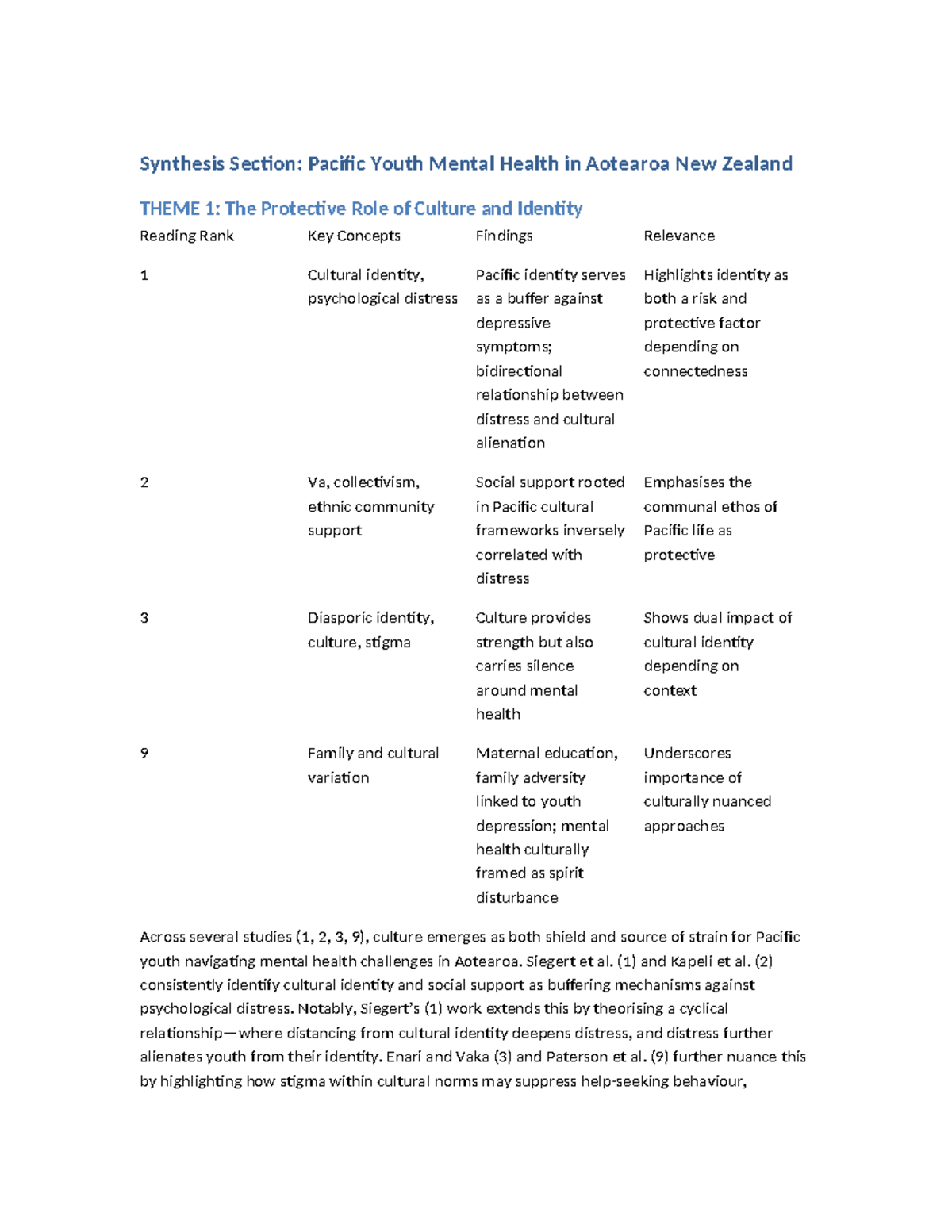A synthesis of research on Pacific youth mental health in Aotearoa New Zealand highlights the complex interactions between cultural identity and psychological well-being. The findings reveal that cultural identity can act both as a protective factor and a source of distress for Pacific youth, depending on their level of connectedness to their heritage.
**Protective Effects of Cultural Identity** Multiple studies indicate that a strong Pacific identity can buffer against symptoms of depression. For example, research by Siegert et al. and Kapeli et al. shows that cultural identity and community support significantly reduce levels of psychological distress among Pacific youth. These studies suggest that when youth feel connected to their culture, they experience fewer depressive symptoms.
**Social Support from Collectivism** The communal nature of Pacific societies offers additional support for youth mental health. Social frameworks rooted in Pacific cultures are inversely related to distress; when youth engage with their ethnic communities, they benefit from enhanced social support. This communal ethos emphasizes the importance of relationships and collective well-being, which can serve as effective protective mechanisms against mental health challenges.
**Stigma Surrounding Mental Health** While cultural identity provides strength, it can also perpetuate stigma around mental health issues. Research indicates that cultural norms often discourage open discussions about mental health, leading to silence around these topics. This stigma can inhibit help-seeking behaviors among youth, which may exacerbate their mental health difficulties. Enari and Vaka, along with Paterson et al., discuss how this dual impact of cultural identity complicates the mental health landscape for Pacific youth.
**Family Context and Cultural Variation** Factors such as maternal education and family adversity are linked to youth depression, with mental health sometimes framed within the cultural context as a disturbance of the spirit. These findings underscore the necessity for culturally tailored approaches to mental health interventions. Culturally nuanced strategies can address the unique challenges faced by Pacific youth, acknowledging both the protective and detrimental aspects of cultural identity.
In summary, the synthesis of studies illustrates that culture plays a dual role for Pacific youth in Aotearoa New Zealand. It can serve as both a shield against mental distress and a source of pressure, depending on individual experiences and community dynamics. Understanding these nuances is crucial for developing effective mental health strategies tailored to the needs of Pacific youth.



